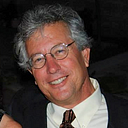The Louisiana Purchase — Letter Sent to Dad in 1803
By Anessa Lee (‘20)
In my Honors US History class, I learned about something called the Louisiana Purchase. Specifically I learned that:
- The term Louisiana Purchase refers to “the acquisition of the territory of Lousiana by the United States from France in 1804.”
- As a result of the purchase, the U.S. acquired a total of 828,000 square miles of land, nearly doubling the size of the country.
- The U.S. spent approximately fifteen million dollars to purchase the territory.
- Acquisition of Louisiana alone was a long-term goal of President Jefferson, “who was especially eager to gain control of the crucial Mississippi River port of New Orleans,” but the U.S. agreed to purchase the Louisiana Territory in its entirety after Napoleon offered to sell it.
- Acquistion of the territory was opposed by members of the Federalist Party. Nonetheless, Thomas Jefferson and Secretary of State James Madison James Madison convinced Congress to fund the Louisiana Purchase.
After having learned the above, my teacher encouraged me to write a 750–1000 word Historical Fiction Letter, with this letter to be written from the perspective of an American who was between the age of 21–25 and in France at the time of the Louisiana Purchase. My teacher also encourged me to address my letter to my dad.
In the Historical Fiction Letter appearing below, I assume that I was a 23 year old American directed by President Thomas Jefferson to accompany Robert Livingston and James Monroe to France in an attempt to buy Louisiana for the U.S.
I also assume that I was writing my letter from a Paris coffeeshop in the afternoon of April 30, 1803, one day after France had agreed to sell the Louisiana territory to the United States.
______________
Dear Dad:
As you know, I am in France accompanying Robert Livingston and James Monroe as they negotiate with the French on behalf of President Thomas Jefferson.
This experience has been life defining — fulfilling beyond my wildest dreams — and this from someone who thinks he’s already lived a pretty notable life to this point. However, any prior experience or accomplishment I’ve had to this point in no what compares to what I experienced today, April 30, 1803, deep in the bowels of Paris.
President Jefferson’s original intent was for us to broker the purchase of the Port of New Orleans and its surrounding territories with a maximum budget of $10 million. As you know, America has an interest in what we call ‘French New Orleans’ for a number of reasons: increased commerce, exposure, and military positioning (all this in large part because New Orleans is, as I’ve said already, a port.) Acquiring New Orleans would be an enormous boon for America, and so Livingston began negotiations. However, on April 11, a quite intriguing twist was added to the French-American talks.
Having previously mulled things over with Emperor Napoleon, the French Minister of Treasury, François de Barbé-Marbois, and the French Foreign Minister, Charles Maurice de Talleyrand, France offered instead to sell the entire Louisiana territory. Monroe arrived on the next day, the 12, and the process began. I tell you, I began sweating out of shock.Everything moved so quickly. We did not even consult President Jefferson. Time was of the essence, and opportunity waits for no one.
So today, we signed an agreement and fully seized this opportunity. It is mind-numbing to think of the impact of this deal, and the speed at which this was crafted. My hands are still trembling, and you can take this barely legible letter as proof. The agreement details: Louisiana will be sold to the United States for what amounts to $15 million total from a mix of cash payment and debt forgiveness. Precise territory figures still need calculating and ironing out, but ultimately the deal represents over half a billion acres in acquisition for less than 3 cents per acre. Yes, half a billion acres.
One can only guess Napoleon’s intentions. We suspect Napoleon is preparing for war with the British and must concentrate his resources. As our infant nation would know, war is not cheap. Nonetheless, today was a win for our country.
Dad, I so hope our young country will seize this new Louisiana frontier with vigor and purpose. Indeed, Napoleon conceded a prize jewel, and from the glories of his world, we will build a better one.
Best,
Anessa
SOURCES
Britannica, The Editors of Encyclopaedia. “Louisiana Purchase.” Encyclopædia Britannica, Encyclopædia Britannica, Inc., 26 Oct. 2018, www.britannica.com/event/Louisiana-Purchase.
History.com, A&E Television Networks, www.history.com/topics/westward-expansion/louisiana-purchase.
“Robert Livingston.” Ushistory.org, Independence Hall Association, www.ushistory.org/declaration/related/livingston_r.html.
U.S. Department of State, U.S. Department of State, history.state.gov/milestones/1801–1829/louisiana-purchase.
ACADEMIC HONESTY POLICY DECLARATION
I declare that this work is my own work and that I have correctly acknowledged the work of others. This work is in accordance with SMHS Academic Honesty Policy and its guidance on good academic conduct and how to avoid plagiarism and other assessment irregularities.
